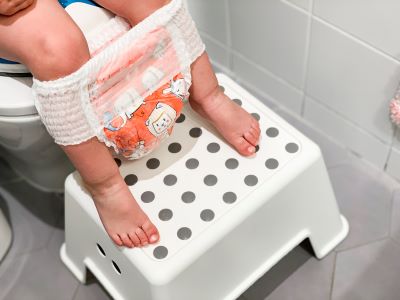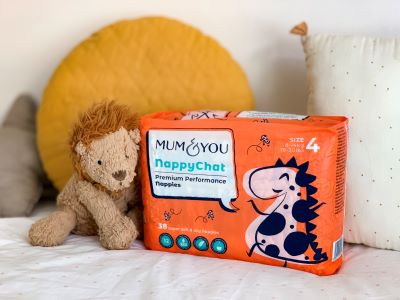Potty training can be a challenging journey for both parents and children, especially if previous attempts have not been successful. For parents of three and four-year-olds who are still in nappies during the day, this process can be particularly frustrating. However, with the right approach, it is possible to help your child achieve this important developmental milestone. This blog offers practical advice and guidance on how to successfully potty train your child, especially if you’ve faced setbacks in the past.
Is 4 years too late for potty training?
The transition from nappies to using the toilet is a significant step for children, and it is not uncommon for some to struggle with this process. According to the NHS, while many children are ready for potty training between the ages of two and three, some may not be fully ready until they are older. This can be due to a variety of factors, including developmental readiness, past experiences with potty training, or a lack of confidence.
What happens if my child isn’t potty trained for school?
It’s becoming more common for children to start school without being fully potty trained. According to recent BBC reports, one in 4 school starters, with no other developmental needs, are entering classrooms still in nappies. This can be stressful for both the child and the teacher. Children who aren’t potty trained may feel embarrassed or anxious, which can affect their confidence and social interactions. In the classroom, teachers might find it challenging to manage a child who needs frequent nappy changes or having accidents and it can disrupt the learning environment.
Practical Tips for Successful Potty Training
If you’ve had previous unsuccessful attempts at potty training, here are some tips and strategies that can help:
- Assess Readiness: Before starting again, assess whether your child is ready. Look for signs such as showing interest in the toilet, staying dry for longer periods, or being able to follow simple instructions.
- Look for their cues: Try to stay in the first few days and watch them like a hawk for signs they need the toilet. This could be a little dance, holding themselves, stopping suddenly or a glance. When you spot this, take them to the toilet or potty
- Create a Positive Environment: Make potty training a positive experience. Avoid showing frustration or disappointment during setbacks. Praise your child for small successes, such as sitting on the potty, even if they don’t use it right away.
- Routine and Consistency: Establish a consistent routine. Take your child to the potty at regular intervals, such as after meals or before bedtime. Consistency helps reinforce the habit.
- Use Visual Aids and Rewards: Visual aids like charts where your child can place stickers for each successful attempt can be motivating for some. Small rewards, like extra playtime or a favorite treat, can also reinforce positive behavior.
- Encourage Independence: Encourage your child to take the lead in the process. Allow them to choose their potty or toilet seat, pick out underwear with their favourite characters, and practice pulling down their trousers.
- Be Patient with Setbacks: It’s important to understand that setbacks are normal. If your child has an accident, respond calmly and reassure them that it’s okay. Avoid punishment, as it can create negative associations with potty training.
- Seek Professional Support: If you’ve tried multiple times without success, it might be helpful to speak to your GP or seek support from charity ERIC (Education and Resources for Improving Childhood Continence) who offer resources and support for parents struggling with potty training.
Conclusion
Potty training is an important milestone in a child’s development, and while it can be challenging, especially after previous setbacks, it is achievable with patience, consistency, and the right strategies. By assessing readiness, creating a positive environment, and seeking support when needed, you can help your child gain the confidence and skills they need to be successful in this process. Starting school potty trained not only benefits your child but also supports a positive classroom environment, contributing to a better educational experience for all.





No Comments